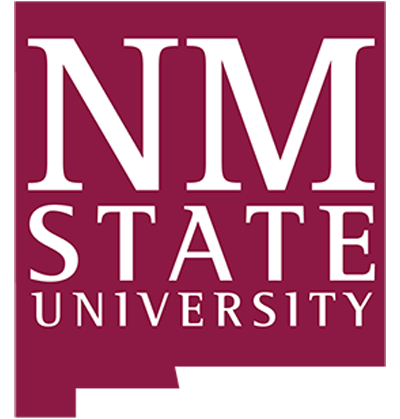This addendum applies to every course with a CHME prefix. It contains information applicable to each course offered in CHME.
Page Contents
- CHME Announcements
- Attendance Policy
- Program Educational Objectives (PEOs)
- Student Outcomes
- Student Accessibility Services (disability accommodations)
- Academic Misconduct
- Discrimination and Disability Accommodation
- Cell Phone Use
- Re-grades
- Communication
- Video surveillance
- Computer Resources
- Crimson Commitment
- Etiquette
- Other NMSU Resources:
CHME Announcements
As a member of the NMSU Chemical Engineering Community, you are responsible for the content in Announcements posted to the CHME website. Announcements and other valuable information on advising, career opportunities, professional development, etc. are disseminated through the CHME listserv, which is populated each semester based on all students who have declared their major as chemical engineering. If your major is not CHME, you will not receive these emails.
Attendance Policy
Attendance is required for all scheduled CHME lectures and/or laboratories. Advance notice and approval is required of all non-emergency absences.
Program Educational Objectives (PEOs)
Student Outcomes
The Department of Chemical & Materials Engineering strives to achieve defined student outcomes through the administration of the BSCHE curriculum.
Student Accessibility Services (disability accommodations)
Academic Misconduct
Academic and non-academic misconduct: The Student Code of Conduct defines academic misconduct, non-academic misconduct and the consequences or penalties for each. The Student Code of Conduct is available in the NMSU Student Handbook online:
Academic misconduct is explained here:
Discrimination and Disability Accommodation
Section 504 of the Rehabilitation Act of 1973 and the Americans with Disabilities Act Amendments Act (ADA) covers issues relating to disability and accommodations. If a student has questions or needs an accommodation in the classroom (all medical information is treated confidentially), contact:
Main Campus
Student Accessibility Services (SAS)
Corbett Center Student Union Room 208
Trudy Luken, Director
575-646-6840
sas@nmsu.edu
New Mexico State University, in compliance with applicable laws and in furtherance of its commitment to fostering an environment that welcomes and embraces diversity, does not discriminate on the basis of age, ancestry, color, disability, gender identity, genetic information, national origin, race, religion, retaliation, serious medical condition, sex (including pregnancy), sexual orientation, spousal affiliation, or protected veteran status in its programs and activities, including employment, admissions, and educational programs and activities. Inquiries may be directed to the William Nutt, Executive Director, Title IX and Section 504 Coordinator, Office of Institutional Equity, P.O. Box 30001, E. 1130 University Avenue, Las Cruces, NM 88003; 575.646.3635; 575-646-7802 (TTY); equity@nmsu.edu.
Title IX prohibits sex harassment, sexual assault, intimate partner violence, stalking and retaliation. For more information on discrimination or Title IX, or to file a complaint contact:
William Nutt, Executive Director and Title IX Coordinator
Office of Institutional Equity (OIE) – O’Loughlin House, 1130 University Avenue
Phone: (575) 646-3635 E-mail: equity@nmsu.edu
Website: http://equity.nmsu.edu/
Cell Phone Use
Use of cell phones and wi-fi enabled devices are prohibited during examinations or when the instructor deems necessary or appropriate. Devices must be turned OFF and not in the student’s possession during exams.
Re-grades
Re-grades may be requested within 1 week of the return of a graded assignment. To request a regrade, students must attach a memo to the original assignment indicating why a re-grade is sought and provide the written request to the professor. The entire document will be re-graded.
Communication
Students are expected to use The Engineering Communication Manual (Oxford University Press, 2017) by Richard House, et al. as the standard for communications in the department. This includes every form of communication, from design reports to email, as well as oral presentations.
Students starting their degree program Fall 2016 or after may continue to use A Guide to Writing as an Engineer (Beer & McMurrey, Wiley).
Video surveillance
New Mexico State University has equipped lecture halls, laboratories, study areas, hallways, and computer laboratories with videotaping equipment and computer monitoring software. Consent to such forms of surveillance is intrinsic to enrollment in courses with a CHME prefix. This includes, but is not limited to video taping of lectures, examinations, and remote viewing of your university-provided computer screen by an exam proctor.
Computer Resources
The department strives to maintain appropriate computer hardware and software resources available for students to use. Please report all software or hardware problems with the computers located in ECIII 301 to coehelp@nmsu.edu. Please report knowledge of vandalism or abuse of these resources to drockstr@nmsu.edu.
Crimson Commitment
All CHME students will complete and abide by the NMSU Crimson Commitment.
Etiquette
All course participants are expected to conduct themselves in a professional manner in all discussions, postings, and activities. It is acceptable to disagree with someone else’s opinions, and to challenge and debate them with research, citations, and/or personal experiences. This is appropriate for learning and is encouraged. However, personal attacks (e.g., references to the other person’s intelligence, ancestry, sexual orientation, gender, age, etc.) will not be tolerated. Also, discussions must not unnecessarily disrupt the course, interfere with instruction, or prevent others from learning.
Other NMSU Resources:
| NMSU Police Department: | (575) 646-3311 | www.nmsupolice.com |
| NMSU Police Victim Services: | (575) 646-3424 | |
| NMSU Counseling Center: | (575) 646-2731 | |
| NMSU Dean of Students: | (575) 646-1722 | |
| For Any On-campus Emergencies: | 911 |


